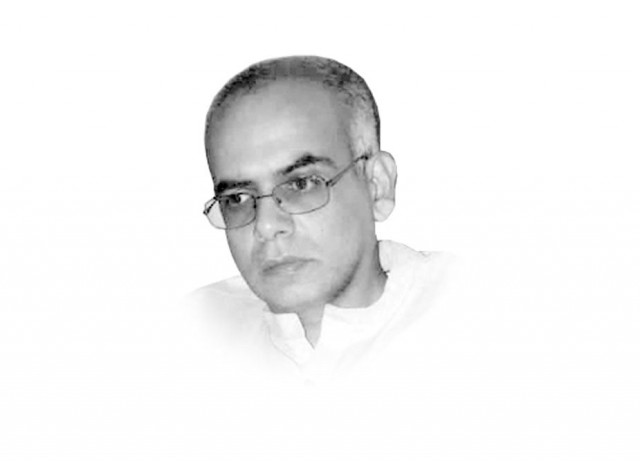Undiscussed issues in Malala debate
Malala needs to look deeper, to get to the bottom of why she has become a figure of such consternation

The writer is a development anthropologist. He can be reached at ali@policy.hu
A plethora of recent articles have defended and decried the unfounded distrust of Malala. Yet, little attention has been paid to how, and why, Malala is not only admired for her personal courage and resolve, but as a symbol of hope for the salvation of backward societies.
Undoubtedly, Malala underwent an unimaginable ordeal, yet she loves her country and misses her home. She has not abandoned her culture, and we all have every right to be very proud of her. Thus, to personally target Malala, or to doubt her intentions is certainly uncalled for. However, it is legitimate to consider why her specific case has evoked this much international sympathy and support, and led her to experience the resulting dizzying levels of fame. Understanding this phenomenon requires thinking about what specific geopolitical, economic, and historical confluences have thrust Malala, from amongst the countless other tragic victims of violence, into a position of prominence.
Malala does fit quite well into the convenient and acceptable mould of victimhood. The pity or admiration evoked by her suffering, and the miraculous escape from the ordeal, subtly endorses typecasts about oppressive, violent and patriarchal societies. Also, Malala championing the cause of education does not challenge the neoliberal views, which advocate education as the panacea for exploitation and marginalisation. Malala’s case and cause do not draw attention to more inconvenient truths, such as the prevailing global hierarchies which compound inequality and marginalisation, or to the collateral damage of geostrategic power plays afflicting much of the global South.
Would Malala have received a Nobel if someone else, other than the Taliban, targeted her? Why didn’t her age-fellow, Ahed Tamimi, the Palestinian girl, evoke similar international backing for her resilience in the face of Israeli heavy-handedness? Questions such as these do carry more legitimacy than labelling Malala an agent of the West.
In a recent interview, Malala herself seemed perplexed by the contentions that have come to surround her as a person. She said she had expected criticism from militants, but couldn’t understand why some educated Pakistanis oppose her. Malala needs to look deeper, to get to the bottom of why she has become a figure of such consternation. Such reflection may not win over many of her current detractors, but it will enable Malala to deepen her own worldview.
When Malala was shot, she was still a little girl. Now she is maturing, and has begun college. She would do well to take some courses in post-colonial studies, to read Edward Said and become familiar with other problematic framings of the ‘East’. She should read Shenila Khoja-Moolji’s analysis of her book, co-authored with Christina Lamb. Collaboration with a high-profile Western journalist helped get Malala’s story out to the world, but it did so at the cost of reinforcing problematic binaries, in statements like “My country is centuries behind this one [England]” or “Most Pashtun men never do this [share everything with their wives as Malala’s father did with her mother], as sharing problems with women is seen as weak”. Conversely, Malala has also been known to strike a more defiant note as at times, like meeting ex-president Obama back in 2013, when she squarely pointed out that use of drones has fuelled terrorism.
Malala now has the exposure and the opportunity to question and transcend simplistic narratives about empowerment. Alongside the cause of promoting education, she needs to begin consistently challenging attempts to typecast her in ways which reinforce reductionist worldviews, even if that necessitates adopting a more critical gaze towards her admiring benefactors.
Published in The Express Tribune, April 13th, 2018.
Like Opinion & Editorial on Facebook, follow @ETOpEd on Twitter to receive all updates on all our daily pieces.
















COMMENTS
Comments are moderated and generally will be posted if they are on-topic and not abusive.
For more information, please see our Comments FAQ